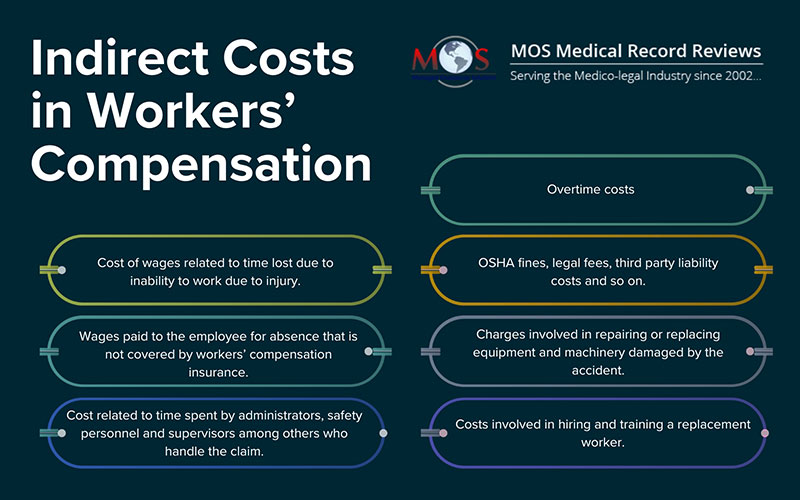Workers’ compensation insurance offers coverage for occupational injury and illness, and the costs include medical costs and any wage replacement (indemnity) payments. The insurance company will pay this dollar amount to settle a claim. Workers’ compensation claims are settled based on a detailed medical records review to determine the nature and extent of the injury and its impact on the employee’s ability to work. Employers may experience considerable indirect costs as a study done by the Stanford University Department of Civil Engineering points out. These indirect costs may exceed the direct costs as in the example given, i.e. if a fracture generates direct costs of $50,000, it can generate indirect costs in the range of $55,000.
Benefit from timely and dedicated solutions!
In addition to the above is the lost productivity connected with work rescheduling, new employee learning curves and accommodating the injured employee.
Employers are required to ensure the safety of their workers and adhere to the necessary safety standards. In case an injury occurs, and the employee files a claim, the attorney representing the employer will initiate the process of collecting all the relevant medical records and review them for merit and causation. Typically, workers’ compensation attorneys utilize medical review services to speed up the record analysis.
A recently released survey by the National Safety Council shows that 33% of the 2000 employees surveyed across the U.S believe that employers attach more importance to productivity than safety in their organizations. This percentage was higher among workers in high-risk industries. 60% of those working in the construction industry, and 52% of those working in forestry, agriculture, fishing and hunting felt safety was not as much a priority as completing tasks. Now, these findings are disquieting because the above-mentioned industries come first and second when it comes to the number of workplace related deaths each year. The survey is a reminder that employers still have to go far to ensure safety for their employees. The data from the Bureau of Labor Statistics show that the number of workplace deaths in 2014 was as high as it has been since 2008. It is estimated that more than 4800 workers died from incidents such as exposure to harmful substances, slips and falls, car crashes and contact with equipment/objects.
70% of employees do say that safety training is part of their orientation and that workers’ well-being and health is promoted at work. Other findings such as the following, however, highlight the fact that employers need to give more focus to employee safety and implement measures and programs to ensure safety at the workplace and win the confidence and trust of their employees:
62% of construction workers and employees in fishing, hunting, forestry and agriculture believe that the management does only the minimum required by law to keep their employees safe.
49% of temporary and contract workers, and 41% of those working in healthcare settings said they were afraid to report any safety issues.
61% of workers in the agriculture, forestry, fishing, and hunting sectors believe there is resistance to working safely among employees.
Workers’ compensation attorneys representing employers emphasize certain obligations employers have under the workers’ compensation system. If these are not met, employers face the risk of being fined or even sued by employees in court.
Here are those obligations.
- Necessarily carry workers’ compensation insurance
- Post the required notices and advise the workers of their legal rights. The employees should be notified of the organization’s workers’ compensation carrier, or that the employer is self-insured. They should also be informed as to who is responsible for claims adjustment. The notices should provide details about the available workers’ compensation benefits and inform the workers that if they are injured at the workplace, they have the right to receive medical treatment as well as to select or change treating doctors.
- Injured employees must be provided with a workers’ compensation claim form within 24 hours of receiving notice regarding the injury.
The worker must be provided with written information regarding his/her rights under the workers’ compensation system. The information should include details about available benefits and how to file a claim.
Looking for value-added workers’ compensation medical record review?
MOS can provide customized medical review solutions.





